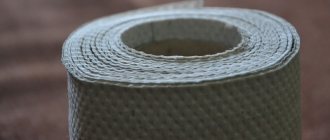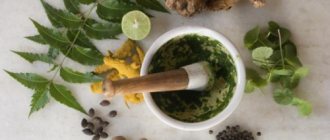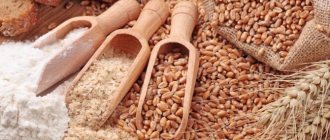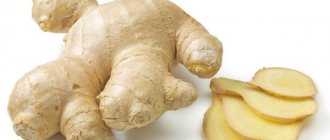Treatment of intestinal colitis with honey
Honey for colitis is used taking into account the type of pathological damage to the intestinal mucous membranes.
There are about twenty of them in total. This includes radiation, toxic, drug, infectious, ulcerative, and inflammation of unknown etiology. Sometimes the pathology is provoked by other diseases of the gastrointestinal tract, for example, pancreatitis or gastritis. Most often, honey is used for chronic disease, characterized by unstable stool (a combination of diarrhea and constipation).
Remedies for constipation
This is what inflammation looks like
The intestinal mucosa in an affected state cannot cope with its functions. Dystrophic and atrophic changes occur in the area of the colon - all secretory and motor processes occur with disturbances. The patient is tormented by the passage of gas, aching pain, rumbling in the stomach, and a feeling of poorly emptied bowels.
Constipation is typical for colitis of nervous (spastic) and chronic origin.
Aqueous solution and use in pure form
Honey as a laxative is used in its pure form or as a thick aqueous solution. One tablespoon of product is required per dose. Three times a day, this dose is taken two hours before meals or three to four hours after it.
It is recommended to first drink 100-150 ml of Borjomi or Essentuka (numbers 17 and 4 are suitable). In folk remedies there is also advice to drink a soda solution instead of mineral water - half a glass of half a teaspoon of sodium bicarbonate. This solution helps to temporarily neutralize gastric juice, which has a detrimental effect on honey, reducing its antibacterial properties.
Combination with apple juice
As a laxative, you can take from 60 to 100 grams of natural honey one time. Or divide this dose into two doses. It is recommended to mix the bee product with a glass of cold boiled water or apple juice. And drink the mixture on an empty stomach in the morning, and then at night before bed.
The laxative effect is due to the presence of a large amount of organic acids and sugars in the bee product, which successfully combat lethargy and stimulate peristalsis.
Combination with castor oil
For severe constipation, it is recommended to mix honey with egg yolk, castor oil and water. The mixture is taken one tablespoon every two hours until bowel movement.
- 150 ml chilled boiled water;
- one chicken egg yolk;
- a tablespoon of castor oil;
- the same amount of honey.
Diet for exacerbation of ulcerative colitis
In case of exacerbation of the disease, table 4a is recommended, which provides a low-calorie diet. Protein products are left on the menu, components containing carbohydrates, especially simple sugars, and refractory fats are reduced. Food is served pureed or finely chopped, porridges and soups are prepared with a slimy, liquid or semi-liquid consistency. It is better to eat 6 times a day.
The diet for ulcerative colitis of the intestine in the acute stage is aimed at reducing inflammation and normalizing stool. Recipes for dishes depend on the clinical picture. If the patient has an inflammatory process accompanied by diarrhea, limit salt and fermented milk products. When constipation is noted, it is recommended to include vegetables and fruits that have been previously heat-treated.
Elimination of inflammation in the lower intestines
The inflammatory process, accompanied by frequent constipation, provokes the appearance of cracks, ulcers, and hemorrhoids in the rectum.
In this case, tampons soaked in honey melted in a water bath at 40 degrees, which should be inserted into the rectum at night after bowel movements, will help.
It is also allowed to use a 50% solution of bee product, which is generously moistened with a gauze or cotton swab.
The same solution is suitable for combating constipation. Using it, a microenema is given - 50-100 ml of honey solution is injected through a thick probe.
Treatment of colitis with enemas
Buy rosehip oil or sea buckthorn oil at the pharmacy (sea buckthorn is more effective). There, the instructions will say for what diseases and how they can be used.
Microclyster from sea buckthorn oil. The oil should be administered in doses of 50-60 g for adults and 25-30 g for children under 12 years of age, this is done using microenemas, through a catheter 25-30 cm long for adults, and 10-15 cm for children.
To make a microenema, buy a 100-gram syringe with a catheter. Take 50-60 grams of oil into it and inject it into the rectum. It is necessary that the oil stays there for a sufficient amount of time. During the procedure you need to lie on your left side. Try to sleep until morning.
Healing will occur depending on how deeply you inject the oil into the intestines, as the oil coats all ulcers. When you have a bowel movement in the morning, you will see blood, don’t be alarmed, it’s oil, it looks a lot like blood.
Treatment of the entire inflamed bowel
Treatment of colitis with honey in folk recipes involves the use of other beekeeping products, for example, pollen (pollen).
Obnozhka
To prepare the medicinal mixture, take:
- 50 grams of pollen (pollen);
- 180 grams of fresh or candied honey (later it will dissolve in water);
- 800 ml of cooled water after boiling.
The listed bee products dissolve in water. The mixture is kept at room temperatures for two to three days to ferment. Then it is placed in the refrigerator in a glass container.
Drink three times a day before main meals for 1-1.5 months. Single dose – 100 ml.
You can use the pollen separately. Also take a teaspoon three times a day, half an hour before meals. In this case, it is not added to the water mixture, and the honey solution is drunk separately. The course of treatment with a separate intake of pollen takes on average up to three weeks.
Royal jelly
Honey for nonspecific ulcerative colitis is prescribed in combination with royal jelly.
The mixture is kept under the tongue until completely dissolved. To prepare it, 100 parts of honey product are added to one part of milk.
Take 5 grams three times a day with simultaneous treatment with an aqueous extract of propolis (30-40 ml of a 10% extract three times a day).
To relieve acute inflammation, suppositories with propolis are injected deep into the rectum every night. And after the inflammation subsides, microenemas are used - rosehip oil with the addition of a 10% aqueous extract of propolis and a 30% oil solution of vitamin E (proportion of 1 ml of vitamin per 10 ml of a mixture of rosehip oil and propolis extract).
Infusion of dried cucumber
This universal recipe is recommended for many gastrointestinal diseases. Important: with low acidity, the mixture should be taken 1.5-2 hours before meals.
Take a tablespoon of marsh dried grass (chopped grass) and natural honey. The dryer is filled with hot boiled water and infused for half an hour. Add honey to the cooled infusion and stir until completely dissolved.
Drink two tablespoons three times a day.
Things to remember
In conclusion, I would like to emphasize that you can eat honey for colitis every day, but in moderation. 30-60 grams of this bee product successfully replaces sugar and other harmful sweets.
The beneficial effects of honey, as well as various medicinal mixtures with it, on the stomach and intestinal tract are obvious - the bee product improves motor and secretory functions, relieves pain, and provides mild relaxation.
However, honey is not suitable for people suffering from intolerance to bee products. It is practically not consumed in case of diabetes (it is allowed to eat it in small quantities only in case of type 2 disease).
Another important point is the effectiveness of such folk treatment. Colitis, like any serious disease, requires treatment with medications. Honey serves only as an addition to the main treatment. This is not a panacea or a substitute for pills!
In addition, in folk medicine, colitis is often recommended to be treated with propolis (suppositories, tinctures, extracts) than with honey. We will definitely talk about the benefits of propolis and the features of its use in a separate article.
Application and effect of honey
Bee product is high-calorie, but at the same time dietary product. Its effect on the gastrointestinal tract depends on the method of application and the type of honey itself. However, in any case, it helps to normalize the secretory function of the intestine.
Colitis is accompanied by increased gas formation and bloating, which leads to fermentation and even causes rot in the intestines. Consuming honey stabilizes the microflora, preventing the development of these processes. Thanks to the antibacterial properties of the sweet product, the process of reproduction of harmful microorganisms stops.
In addition, honey has a general stimulating effect, increasing the patient’s performance. Physical tone is significantly strengthened and mental activity improves.
The healing effect of honey is simply colossal. This combination of nutrients is not found in any other product. Thanks to its composition, sweetness reduces the manifestations of unpleasant symptoms of colitis, such as abdominal pain, nausea and stool disorders.
There are many recipes with honey used for colitis, all of them are highly effective. But we must remember that traditional medicine is most often used as an addition to drug treatment. Therefore, you should not rely entirely on honey therapy. If symptoms of colitis appear, you should consult a doctor and undergo an examination.
Honey can be used for medicinal purposes in different ways. The easiest option is to consume the pure product with a small amount of water or herbal tea. You can prepare a solution by mixing sweetness with other medicines. In addition, local use is possible, namely, enemas with honey. Your doctor will tell you which treatment option is best to choose.
Drinking kombucha tincture with honey and sugar is effective. Most often, the mixture is used to prevent colitis in children. The course of treatment depends on the patient's condition. For a mild form - 1 month, but if the disease is chronic and prevention of exacerbations is necessary, then the infusion is drunk for 3 months.
Treatment of ulcerative colitis is usually carried out with enemas. This not only relieves inflammation, but also stimulates the process of regeneration of the intestinal mucosa.
General rules
Colitis is an inflammation of the colon mucosa. enterocolitis ) and stomach ( gastroenterocolitis are additionally involved in the inflammatory process .
According to the course of the disease there are:
- spicy;
- chronic.
If acute develops as a result of eating food contaminated with microorganisms, then with pseudomembranous, which also occurs acutely, the cause is the use of medications (in particular, antibiotics cephalosporins , Clindamycin , Tetracycline and Erythromycin ).
At the initial stage of acute colitis, general malaise, nausea, loss of appetite, abdominal pain and diarrhea . The pain is most often localized in the iliac regions. The stools are frequent, offensive, and at first fecal in nature, and then become scanty with mucus and blood. In the first days of the disease, you need to follow bed rest and diet in addition to drug treatment. Acute colitis does not cause gross morphological changes in the intestinal mucosa.
Chronic colitis is accompanied by inflammatory-dystrophic changes in the intestine and there is always a violation of its functions.
The causes of the chronic form of the disease are:
- previous intestinal infections;
- uncontrolled use of medications;
- constant endogenous intoxication;
- alcohol abuse;
- nutritional disorders (consumption of spicy and coarse, poorly digestible foods, monotonous, protein or carbohydrate nutrition).
The main symptoms of chronic colitis are alternating constipation with diarrhea or pasty stools, accompanied by pain that intensifies with defecation. The pain is aching or spastic in nature and is localized in the lower and lateral parts of the abdomen. Occurs most often 7 hours after eating; they typically decrease after the passage of gas. Many patients are bothered by nausea, bloating and belching .
If digestion is impaired, starch grains, neutral fat, and undigested muscle fibers are found in the feces. With a long course, chronic colitis is characterized by the progression of intestinal digestive disorders, which is accompanied by weight loss, the development of atrophy of fatty tissue and skeletal muscles, and an increase in protein and vitamin .
Treatment of the disease should be comprehensive, including anti-inflammatory drugs ( Sulfasalazine , Mesalazine ), enveloping and astringent drugs (for diarrhea ), physiotherapeutic treatment ( electrophoresis , diathermy , ozokerite , radon baths ). A prerequisite is therapeutic nutrition.
For symptoms of colitis at different stages and for intestinal dysfunction, treatment with diet is prescribed differentially.
So, for acute colitis and for exacerbation of chronic colitis, occurring with diarrhea, Diet No. 4 . It involves the exclusion of foods that cause increased intestinal motility (vegetables, bran, fiber) and stimulate the secretion of the pancreas, stomach and bile secretion. All products that cause fermentation and rotting are also excluded.
If constipation , Table No. 3 , enriched with fiber (bran bread, vegetables, vinaigrettes, vegetable juices).
Diet No. 2 is indicated for chronic colitis (without exacerbation) and concomitant chronic gastritis with reduced secretion, therefore it includes dishes and products that stimulate secretion (fermented milk drinks, broths, juices, berries, vegetables and fried dishes without a rough crust).
Diet No. 4 for colitis with diarrhea provides intestinal sparing, reduces inflammation and normalizes digestion, because it limits all kinds of irritants (mechanical, chemical and thermal).
Basic Rules:
- six meals a day, the basis of which is pureed, slimy soups, pureed, mushy, semi-liquid dishes;
- reducing the amount of fat (up to 70 g) and carbohydrates (250 g);
- physiological protein content (90 g);
- exclusion of foods containing fiber (vegetables, fruits, rye bread, whole grain bread and bran);
- exclusion of very hot and cold foods;
- boiled (steam) method of preparation;
- prohibition on hard and thick foods;
- implementation of the water regime (1.5-2 l);
- salt in the amount of 8-10 g.
Diet for ulcerative colitis
Nonspecific ulcerative colitis is an inflammation of the large intestine with the presence of ulcerative lesions of the mucous membrane, necrosis and hemorrhage. Most often, the process is localized in the rectum and colon, and with severe damage, all parts of the colon are involved. The causes of the disease have not been established. It is assumed that the basis is immunological disorders and hereditary predisposition, and the predisposing factor is the presence of infection.
With nonspecific ulcerative colitis, the patient is bothered by diarrhea mixed with blood or pus. The frequency of bowel movements reaches 20 times a day or more (in severe cases). Often there is blood in the stool and blood loss of 100-300 ml is possible per day. UC is characterized by severe cramping pain that intensifies after eating.
In severe cases, intoxication syndrome is observed with weakness, fever, decreased appetite, and systemic manifestations are also characteristic ( polyarthritis , eye and liver damage). , dystrophic syndrome develops (dry skin, weight loss, hypovitaminosis ).
With this disease, complete restoration of the mucous membrane and normalization of digestion and absorption do not occur for a long time. And only strict adherence to dietary nutrition and medications create the conditions for achieving remission. In this case, Table No. 4 and its varieties are assigned depending on the stage of the process.
Rice porridge with fruits
During an exacerbation, the diet includes liquid and pureed porridge (rice, semolina) in water (milk and broths are excluded). Buckwheat porridge enhances motor skills, so it is not recommended during an exacerbation. It is convenient to use porridge for baby food, but it needs to be diluted by half with water.
Includes dishes from lean meat and fish (in the form of boiled minced meat, dumplings, steamed cutlets, pates). Protein omelettes made from eggs are useful (no more than two per day). During an exacerbation, the amount of protein in the diet should be increased to 120-125 g.
Drinks include herbal decoctions, compotes and jelly, chokeberry juice. Baked apples and pears are allowed. Particular attention should be paid to products that reduce intestinal motility - decoctions and jelly from bird cherry, blueberry, quince, dogwood, pear, strong black and green tea. During an exacerbation, some patients do not tolerate even boiled vegetables well, so it is better to exclude them. Consumption of milk, fermented milk products, sour cream, cheeses and cottage cheese is also not recommended.
For a month after an exacerbation, it is necessary to strictly adhere to the diet; subsequently, it is recommended to switch to Table 4B and 4B and the general table with the restriction of certain foods for health reasons. After an exacerbation, foods that promote hematopoiesis are introduced into the diet, red and black caviar, walnuts, and meat broths are gradually added. During the period of stable remission, the consumption of vegetables (broccoli, cauliflower, carrots, zucchini, onions) is allowed.
Application and effect of propolis
Propolis for colitis is another common traditional medicine. This is perhaps the most powerful antibiotic of all that nature provides to humans. At the same time, unlike medications, bee glue kills only harmful bacteria, while the beneficial intestinal microflora remains intact.
The product is often used in combination with antibacterial drugs to enhance the effect of the latter. It must be remembered that in case of intestinal dysfunction, it is better to inject antibiotics rather than take them in tablet form, as this can lead to even greater digestive upset. Adding propolis to various medications enhances their antitumor and astringent effect. In addition, the product has an immunostimulating effect.
Bee glue contains the following components:
- phenolic acids;
- flavones;
- benzoic acid;
- flavonoids;
- esters.
Due to the presence of substances such as phagocytes in the product, it acts as a sorbent, removing already destroyed pathogenic cells from the body. This significantly reduces intoxication of the body. Propolis has regenerating properties, this stimulates the restoration of the intestinal mucosa in UC (nonspecific ulcerative colitis).
You can use propolis in its pure form, dissolving the product in tea, or as an alcoholic infusion. In addition, you can buy propolis-based suppositories at the pharmacy. The course of treatment and dosage schedule must be prescribed by a doctor. In most cases, 14 days are enough to normalize intestinal function.
A little about chocolate and its use in UC and CD
Perhaps neither marshmallow nor marmalade with marshmallows can compete with chocolate in the fight for the most favorite treat for both children and adults.
If we talk about nonspecific ulcerative colitis, then I was lucky in this regard: according to the results of my blood test for allergens, no negative reaction to cocoa beans was detected, so I just enjoy eating coffee with a piece of dark chocolate. The main beneficial properties of chocolate :
- Reducing the risk of heart attack, stroke, atherosclerosis, diabetes and oncology.
- Beneficial effect on blood vessels and heart muscle.
- Stimulation of brain activity.
- Prevention of colds.
One of the negative aspects that should be taken into account by patients with IBD is some laxative effect of chocolate. If you are prone to various types of allergies, then cocoa beans can intensify their manifestation. In addition, some sources report that chocolate can provoke an exacerbation of ulcerative colitis and Crohn's disease. These are the pies.
Recipes with honey and bee glue
There are many traditional medicine recipes based on products provided by beekeeping. Below are the most common methods of using honey and propolis to treat colitis.
You can treat the disease with pure honey. To do this, you need to consume 25 g of the product 4 times a day, washing it down with warm water. However, you need to remember that a side reaction in the form of heartburn is possible. To avoid discomfort in the stomach, before drinking honey you need to drink a solution of soda (0.5 tsp per 100 g of water).
A solution of honey and pollen is highly effective. However, this remedy must be prepared in advance. 180 g of bee product is mixed with 800 ml of cold water. After the sweetness is completely dissolved, add 50 g of flower pollen, mix and leave for 3-4 days at a temperature of 18-20°C. After the solution has infused, take 0.5 cups before meals.
To prepare an enema you will need 1 glass of chamomile infusion and 1 tsp. honey The components must be mixed thoroughly.
An alcohol infusion of bee glue can be used for any form of the disease. 2-3 days after the start of treatment, the pain syndrome disappears, stool normalizes, and bloating disappears. The infusion has several concentration options: 10, 20 and 30%. In most cases, treatment begins with a 10% solution, taking 30 drops of it, diluted in 0.5 glasses of water. The medicine is taken 3 times a day, 1 hour before meals. However, the attending physician may prescribe a 20 or 30% solution, changing the dosage regimen according to the needs of the individual patient. The course of treatment is 3-4 weeks.
Treatment of colitis with propolis can also be carried out using enemas. This will require 0.5 cups of 4% water infusion. The product is used after cleansing the intestines.
If a patient suffers from ulcerative colitis, the best treatment option would be bee glue suppositories. For 2-3 weeks, it is necessary to administer 1 suppository before bedtime.
Nonspecific ulcerative colitis - folk recipes for its treatment
One of the most serious types of colitis is nonspecific ulcerative colitis, characterized by a chronic inflammatory process in the colon with the development of ulcers, bleeding and pus formation. Inflammation, which occurs at certain intervals, often leads to chronic colitis. The disease is caused by prolonged irritation of the wall of the colon, constantly used enemas, suppositories, all kinds of bacteria and viruses, food poisoning, as well as non-compliance with the diet. The most easily diagnosed symptoms of colitis are frequent diarrhea or alternating diarrhea and constipation. In this case, the patient feels incomplete emptying of the intestines. Colitis pain is usually worse after eating and before bowel movements. It can be eliminated by applying heating pads and warm compresses to the sore spot. If the inflammation that occurs during colitis has spread to the serous membrane of the colon (this worsening of colitis is called pericolitis), then the pain in the abdomen sharply intensifies from shaking and walking. You can relieve it by lying down for a while.
Chronic colitis
The course of chronic colitis can be long-term or gradually progressive with alternating periods of exacerbation. Complications include rupture of ulcers in severe ulcerative colitis, intestinal bleeding, narrowing of the intestinal lumen and the occurrence of adhesions. The inflammatory process is caused by the toxic effects of poor quality food, infection, certain medications, especially antibiotics, genetic predisposition and a number of other reasons. Dyspeptic manifestations of the disease are eliminated by the same plants as for enterocolitis, but more often colitis is accompanied by atonic and spastic constipation, fermentation and putrefactive processes. In this case, St. John's wort helps best. You need 5 tbsp. pour three cups of boiling water over the chopped herbs, strain after an hour and drink 1/3 cup half an hour before meals. If the stool is loose or normal, one month of treatment is sufficient. For constipation, add 1 tbsp to the infusion used. Polygonum tincture (5 tablespoons of crushed herb, pour 0.5 liters of vodka and leave for 2 weeks). It can be taken 1 tsp. 3 times a day before meals and without infusion. Take it for a month, then take a week break and repeat the course again. St. John's wort herb can be mixed equally in volume with centaury herb, then 4 tbsp. pour 0.5 liters of boiling water over the mixture, leave until cool, strain and drink 0.5 cups warm 4 times a day before meals. This helps normalize stomach acidity, eliminates heartburn, constipation and flatulence. As an astringent and hemostatic agent for ulcerative colitis, enteritis, enterocolitis, dyspepsia, gastritis, stomach ulcers, cramps and colic, a decoction of cinquefoil anserine helps well. To prepare it, 5-10 g of crushed rhizomes of the plant are poured into an enamel bowl with 500 ml of hot water, brought to a boil and cooked for 20 minutes over low heat. After this, filter and take 1 tbsp. 2 hours after eating. You can drink a decoction of cinquefoil herb. To do this, pour 20 g of crushed raw material into 200 ml of hot water, bring to a boil, leave for 2 hours, filter and drink 1/4 cup 3-4 times a day half an hour before meals. Take 1 tsp of freshly squeezed goose juice from the cinquefoil herb. 3 times a day, diluted in a small amount of water, for colitis with constipation. Treatment with cinquefoil is carried out from the beginning of the plant’s flowering until autumn. A decoction of burdock seeds is indispensable for colitis with poor intestinal motility. You need 3 tbsp. pour the raw materials in a thermos in the evening with two glasses of boiling water, leave overnight, and in the morning strain and drink in equal portions 3 times during the day. Drink after meals. Colitis with poor intestinal motility and burdock fruit will be overcome. You need 2 tbsp. with a heap of crushed raw materials, pour 2 cups of boiling water into a thermos in the evening, leave overnight, and in the morning strain and drink 1/3 cup 3 times a day 30 minutes before meals. This remedy not only has a laxative effect, but also helps eliminate atrophic changes in the mucous membrane of the colon. Not without success, I use the herb toadflax, collected together with seeds, for colitis and intestinal atony. You need to pour a glass of boiling water over an incomplete handful of herb, leave under the lid until it cools, strain and take 1 tablespoon several times a day, and drink the rest of the infusion at night. Treat in this way for 2 weeks, then take a week break and repeat the treatment course again. Treat with such courses with breaks for 3 months. It should be remembered that long-term use of flaxseed increases blood pressure, so this plant is contraindicated for hypertensive patients.
Honey for intestinal colitis
The medicinal properties of honey and its products have been known since ancient times.
A valuable dietary high-calorie product has a dual effect on the secretory function of the gastrointestinal tract, depending on the method and conditions of use, and it also helps to improve intestinal function. In the presence of fermentation and putrefaction processes in the intestines, which manifest themselves with excessive gas formation and bloating, honey restores the microflora to its natural form. The antibiotics contained in the product inhibit the proliferation of harmful bacteria. Biogenic stimulants affect human performance, namely: mental and physical vitality significantly improves. In folk medicine, the expression “Honey is man’s friend” is very popular, since it has the properties of an effective normalizing effect on the inflamed surface of the intestinal mucosa, regulatory and secretory functions. Honey also has an enveloping and analgesic effect, which, in turn, promotes the healing of lesions on the surface of the intestinal mucosa.
As you know, the main signs of colitis are pain in the intestines, symptoms of constipation or diarrhea, nausea, and other unpleasant symptoms. Based on the numerous healing properties of honey, it is a valuable tool in the complex therapy of intestinal colitis. So, common ways to use it for healing are:
- You can only take honey in a pure, undiluted consistency with warm water, tea, or yogurt.
- Internal administration in the form of mixtures of various concentrations; it can also be dissolved with other substances.
- Enemas or microenemas with honey.
To regulate the activity of the gastrointestinal tract, suppress putrefactive and pathogenic microflora in intestinal colitis, a seven-day tincture of kombucha containing five percent honey and sugar is quite effective. It is especially useful for children when used instead of gas. water and kvass. For spastic type colitis due to nervous reasons, accompanied by constipation, a course lasting exactly three months is required. Should be taken daily before meals or after 1 tbsp. spoon of the product or its thick watery solution. Excellent results can be obtained during the treatment of inflammation with erosions and ulcers. It consists of giving patients microenemas with honey or Konkov ointment. There are many recipes for preparing mixtures with honey for intestinal colitis.
Shilajit for colitis
Shilajit is often used to treat ulcerative colitis. This is one of the few folk remedies that have shown real results.
Shilajit for ulcerative colitis. Mumiyo is mixed with water in a ratio of 0.1 grams of mumiyo per 1 tablespoon of water). The daily dose of the resulting solution is 0.2 grams. Each dose is 10 ml of a solution with a concentration of 1% orally. The remaining daily dose (0.1 gram) must be used in the form of rectal suppositories. When using the product in this way, a pronounced anti-inflammatory, analgesic and regenerative effect is achieved. There is an elimination of specific manifestations from the gastrointestinal tract: heartburn, belching, diarrhea, etc. (dyspeptic manifestations).
For patients suffering from concomitant neurological disorders (VSD), the substance has a calming (sedative) effect. The course of treatment for ulcerative colitis is about 30 days. At the end of taking mumiyo, restoration of the intestinal mucosa from ulcerative lesions and relief of inflammation are observed. Despite its effectiveness, the greatest benefit can be achieved by taking mumiyo in combination with traditional medications.
Shilajit for enterocolitis. A complicated type of colitis, enterocolitis, is also treated using the same scheme. With the right approach, intestinal ulcers are eliminated by the 14th day of treatment, complete regeneration of the mucous membrane of the large and small intestines takes about 28-35 days. Specific manifestations disappear by 7-12 days. Pain syndrome is alleviated, dyspeptic disorders are eliminated, body temperature returns to normal physiological levels. A general blood test indicates stabilization of the body’s condition (ESR, red blood cells, hemoglobin return to normal).
In case of complicated pain syndrome in the anus and pronounced dyspeptic symptoms (feeling of heaviness in the abdomen, heartburn, etc.), rectal administration of mumiyo (in the form of suppositories) is recommended. Scheme: 0.1 grams of mumiyo in three doses, throughout the day.
Taking mumiyo in no way eliminates the need for traditional inpatient or outpatient drug treatment. Shilajit accelerates the process of tissue regeneration, and it can only be taken in conjunction with medications. This is how the greatest therapeutic effect is achieved.
The main disadvantage of treatment with mumiyo is its ability to disrupt the normal intestinal microflora. This happens extremely rarely, but it is still recommended to consume fermented milk products (kefir, etc.).
Propolis for intestinal colitis
Bee glue, propolis, being the best folk antibiotic, is used to destroy harmful microbes without harming healthy microflora. Its use in preparations enhances its astringent and antitumor effects, and at the same time significantly increases the patient’s immunity. The structure of propolis includes:
- flavones;
- flavonoids;
- phenolic acids;
- benzoic acid.
In addition, the presence of phenolic acid esters and other substances is noted. The use of propolis simultaneously with antibiotics enhances their effect and at the same time preserves the intestinal microflora. Due to special cells (phagocytes), it removes destroyed microbial cells, which reduces poisoning of the body. In case of ulcerative colitis, it helps to restore the integrity of the colon mucosa.
Take propolis for colitis in the form of tinctures with alcohol, dissolved in cold tea or milk three times a day an hour before meals. The course of treatment is two weeks. To treat proctitis, suppositories and bandages with ointment based on it are used. When using honey and other bee products in the treatment of colitis, you should be aware that they have a strong allergic effect. Therefore, you should never self-medicate.
Products for ulcerative colitis and Crohn's disease
Products for ulcerative colitis and Crohn's disease. Grocery list.
Today we will tell you which products are allowed and prohibited for such controversial diseases as ulcerative colitis and Crohn's disease.
Many people know that with general recommendations from doctors about nutrition, there is an important point such as individual intolerance. But you need to understand that if your body can currently tolerate this food (despite doctors’ prohibitions), then sooner or later it may reject it, and you will experience an exacerbation. This can lead to a worsening of the disease and complications. Therefore, it is better to stick to the basic diet and not push your luck.
What CAN be eaten (without abuse) for ulcerative colitis and Crohn's disease in remission:
FRUITS
Apples (sweet), pears, peaches, oranges, grapefruits, pomelo, tangerines, bananas, pomegranate, persimmons, mangoes, lemons, papaya, avocado, quince.
VEGETABLES
Carrots, Chinese cabbage, potatoes, zucchini, eggplant, cucumbers, tomatoes, peppers (sweet), Brussels sprouts, broccoli, asparagus, pumpkin.
GREENS AND SALADS
Dill, parsley, cilantro, celery, leek, basil, mint, onions, romaine lettuce, nettle, iceberg, seaweed (no preservatives), wheat germ.
BERRIES
Cherry, sweet cherry, black currant, raspberry, wild strawberry, strawberry, blueberry, blueberry.
NUTS
With caution (preferably ground): Walnuts, almonds, hazelnuts, cedar, pistachios, sunflower seeds, sesame seeds (not fried).
DRIED FRUITS AND SWEETS
Figs, dates, honey, stevia, carob, marshmallows, marshmallows, cookies.
SPICES AND CONDIMENTS
Onion, garlic, pepper (black and white), cinnamon, cloves, turmeric, curry, barberry.
OTHER PRODUCTS
Olives, black olives, frozen vegetables and berries, sea salt, caviar (red and black), eggs (chicken and quail), cheeses, black tea (not strong), fireweed, compote (not from fermenting and sour ingredients), pasta , rice, buckwheat.
FISH
You can eat all fish. The main thing is in moderation!
MEAT AND POULTRY
Beef, veal, lamb, goat, tongue, rabbit, chicken, turkey, duck, quail, doctor's sausage (our own production).
SEAFOOD
Squid, scallops, shrimp (regular and tiger), lobster, oysters, lobsters, mussels, octopus, crabs.
DAIRY
Yogurt (up to 2.5%), cottage cheese (up to 2.5%), kefir (up to 2.5%), bifilife, curd cheese (without chocolate glaze), sour cream (up to 2.5%), cream (up to 20 %). Be careful with milk - it all depends on tolerance.
PORRIDGE
Hercules, rice, buckwheat.
What NOT to eat if you have ulcerative colitis or Crohn's disease in an exacerbation:
FRUITS
Apples (sour), plums, apricots, oranges, tangerines, kiwis, watermelons, melons, pineapples, persimmons, lemons, grapes, feijoas (anything that has an acidic and fermenting environment).
VEGETABLES
Cucumbers, tomatoes, white cabbage, corn, peas, radishes, turnips, daikon, asparagus, green beans.
GREENS AND SALADS
celery, onions.
BERRIES
No berries are allowed fresh!
NUTS
No nuts allowed!
DRIED FRUITS AND SWEETS
No sweets allowed. Any sugar will be harmful.
SPICES AND CONDIMENTS
No spices are allowed except salt.
OTHER PRODUCTS
Strong green tea, strong black tea, coffee, cocoa are not allowed. I love caviar. You can have rosehip compote.
FISH
Fatty fish are not allowed - trout, salmon, salmon, sole, tuna, mackerel, herring, etc.
MEAT AND POULTRY
Lamb, duck, pork, store-bought sausages, sausages, sausages, eggs.
SEAFOOD
Any are possible.
DAIRY
Yogurt, milk, fresh cottage cheese, kefir, curd cheese, sour cream, cream.
PORRIDGE
Pea, pearl barley, barley, corn.
In case of aggravation, only boiled, stewed, or baked foods (without crust) are allowed!
PRODUCTS THAT NO ONE SHOULD HAVE IN ANY CONDITION!
Alcohol, coffee, chocolate, canned food, carbonated drinks, highly salty foods, spicy foods, watermelon, melon, grapes, raisins. Products with a lot of sugar and sweets. It is undesirable to eat baked goods that contain yeast.
Eating acidic foods and milk with caution during remission!
Food that ferments - forget about it altogether!
In conclusion, foods for ulcerative colitis and Crohn's disease may be different for everyone. With all the recommendations of doctors, you must choose a diet for yourself. Everyone's ulcerative colitis is different. The tolerance of the products is unique. Intestinal damage is individual. Listen to your body and observe.
Our VK group.
Description of ulcerative colitis.
Enteritis, colitis and constipation Herbal infusions for intestinal diseases
Honey for colitis
Dissolve 1 tablespoon of honey in a glass of cold boiled water and drink before meals for colitis (disease of the large intestine). Take 3 glasses of honey solution a day. The course of treatment is 1.5–2 months. Under the influence of honey, the intestines are cleansed of pathogenic microflora. At the same time, honey stimulates the development of non-pathogenic microflora (symbiont bacteria) involved in the digestion of food and the production of vitamins, hormones and other biologically active compounds that the body needs.
Bee bread and colitis
Take 1 teaspoon of bee bread, dilute it in 50 ml of boiled water, let stand for 2-3 hours and drink. Take 3 of these doses throughout the day. The course of treatment for colitis is 1–1.5 months. During the year it can be repeated 3-4 times.
Honey and chronic enterocolitis
Dissolve 80–100 g of honey in 1 liter of apple juice or boiled water at room temperature and drink 1 glass 3–4 times a day for 1–1.5 months for chronic enterocolitis. Conduct 3–4 such courses throughout the year.
Chamomile infusion with honey and colitis
Take 3 tbsp. spoons of dry crushed chamomile flowers, pour 750 ml of boiling water into a thermos, leave for 1-2 hours, strain, dissolve 70-80 g of honey and drink in 3-4 doses during the day. The course of treatment for colitis is 1–1.5 months. After a two-week break it can be repeated.
St. John's wort tincture and enterocolitis
Pour dry crushed St. John's wort herb with 40% alcohol (vodka) in a ratio of 1:5, leave in a dark place for 10–12 days, strain and drink 40–50 drops with a small amount of water 3 times a day for enteritis, colitis and others diseases of the gastrointestinal tract, as well as gallstone disease, cystitis, rheumatism, hemorrhoids, etc. The tincture can also be used externally (for rinsing, 30–40 drops in half a glass of water) for diseases of the oral cavity, pharynx, to strengthen gums, and also to eliminate bad breath.
Herbal remedies for colitis
- Chamomile infusion (3 tablespoons of chamomile, 700-800 ml of boiling water) is mixed with 70-100 grams of honey. Taken 3-4 times a day. The course of treatment is 30-45 days. For complicated colitis, an additional course of treatment is allowed after a 14-day break.
- St. John's wort is mixed with 40% vodka in the ratio: 1:5. The composition is infused for 9-13 days. At the end of the period, the solution is filtered and taken in 45-50 drops. 2-3 times a day.
- St. John's wort is mixed with water in a proportion of 2 tbsp. spoons of herbs per half liter of boiling water. Infuses for one and a half hours. You should take a third of a glass 3 times a day 30 minutes before meals. Helps with enterocolitis.
- An infusion of St. John's wort against colitis is prepared in a similar way. The difference is that St. John's wort must be filled with water and boiled for 12-15 minutes.
- Herbal mixture (10 grams of each component):
- Bird cherry fruits;
- Burnet roots;
- Alder fruits;
- Peppermint);
- Cumin (fruit);
- Fennel (fruit);
- Licorice;
- Highlander roots;
- Chamomile;
- St. John's wort.
Herbal mixture (2 tablespoons) is mixed with 500 milliliters of water. The resulting mixture is boiled for 2-3 minutes over low heat, after which it is necessary to infuse the solution for 1.5-2 hours. After straining, honey is added to the tincture (1 tablespoon per 1 glass of composition). You should take half a glass up to 4 times a day, half an hour before meals. The recipe is effective for enteritis.
On topic: Diet for intestinal colitis










